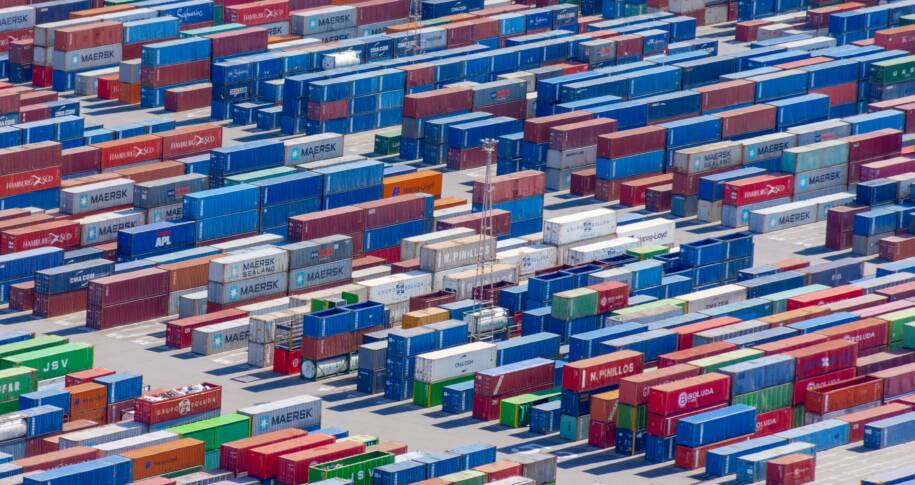Throughout the coronavirus pandemic of 2020/21 many UK businesses large and small have struggled to survive. Some have adapted to the constantly changing circumstances but some have undoubtedly gone to the wall and this situation has been repeated around the globe. The businesses which have adapted and carried on now have rapidly rising costs to contend with and the main driver of this is the soaring cost of shipping and the effect on supply chains.
Global Trade Relies on Shipping
Giant shipping containers carrying hundreds or even thousands of steel containers filled with anything from toys to vehicles are a familiar sight on the high seas. Sea freight is the most utilised method nowadays of carrying goods around the globe and despite the sheer size of the operation and the complex logistics it has always delivered. A small business awaiting a consignment of stock from China for example has always been able to rely on getting everything they need at a competitive price and usually on time.
Consumer Demand Drives Higher Costs
Throughout the pandemic consumers across the world drove a higher demand for goods as those in lockdown or working from home ordered new tech such as computers, game consoles and household makeover items such as new furniture or home improvement items and this was all done largely through online shopping. This placed hitherto unseen demand on global and domestic supply chains which quickly began to buckle due to container and labour shortages dockside and at sea. Coupled with health and safety restrictions and following the law of supply and demand freight costs began to surge across most shipping routes.
Sea and Air Freight Severely Affected by a Chain of Adverse Circumstances
The pandemic delivered a very large shock to the sea container trade as ports around the world were unable to operate efficiently due to staff in large numbers becoming ill with the virus and being forced to stay at home. Strict government restrictions on the movement of people and goods meant that vessel crews as well as truck drivers were not able to cross borders. Repeated lockdowns disrupted supply chains meaning that goods were either late or not delivered at all.
The war in Ukraine has delivered another severe blow to freight companies and their customers with the cost of Russian oil and gas plus the cost of wheat from Ukraine – known as the bread basket of the world – as these have soared and supplies have been severely disrupted.
Research by the International Monetary Fund studied the effects on global shipping costs during the period 1992-2021 using the Baltic Dry Index (BDI). The BDI is a shipping and trade index of average prices paid for the transport of dry bulk materials across a selection of 20 routes and it measures changes in the costs involved in shipping heavy materials such as coal and steel. The BDI is often used as an indicator of economic health, or otherwise, as changes affect supply and demand for materials used in manufacturing.
Global shipping costs surged seven-fold between March 2020 and September 2021 because of the pandemic and this was dwarfed by the cost of shipping bulk commodities. The IMF research concludes that this upward surge is set to continue for the foreseeable future with a knock-on effect on inflation as it increases by around 0.7% for every doubling in freight costs. Higher shipping costs initially affect prices of imported goods dockside within around 8 weeks which then pass on to manufacturing costs. It is then expected that the impact on end consumers begins to build up and peaks after around 12 months. This was certainly reflected in consumer prices as we approached the end stages of the pandemic in early 2022 as shoppers began to notice prices increasing. This however proved to be small beer compared to the rapid price rises in fuel, food and manufactured goods as a result of the global shock which is the Russia/Ukraine war.
How All This Affects UK Small Businesses
Many UK businesses whether large or small operate largely on the ‘just in time’ basis; that is, rather than keep large amounts of stock whether that be foodstuffs or packaging materials, they keep just enough of what they need on their shelves because they have up to now always been able to obtain goods as and when they’re needed.
However businesses have been issuing warnings for some time now about the cost impact of moving and obtaining goods. The British Chambers of Commerce along with MakeUK, which represents manufacturers, wrote in the autumn of 2021 to the Competition and Markets Authority asking to investigate the soaring costs** being imposed by large shipping companies. Even though the global shipping industry continues to post large profits the CMA declared it was unable to do anything about the price rises due to the ‘international nature and multiple factors’ involved.
**The world’s largest container shipping company AP Moller-Maersk recently reported pre-tax profits of $24bn for the tax year 2021, a trebling compared to the previous year. German shipping line Hapag-Lloyd announced its 2021 pre-tax profits have increased by over $10bn in just one year. The average cost of shipping a container of goods from Asia to Europe is currently $14,483, increased ten-fold since 2019.
Small businesses are often the hardest hit by higher costs and freight delivery disruption. Some manufacturers have already issued urgent warnings about the unmanageability of surging prices made all the more difficult by not knowing when the situation will end. Higher prices are said to be caused by higher demand for goods but this is surely only a small part of the problem. The UK Chamber of Shipping has complained of higher costs in fuel, storage and chartering vessels but this explanation is of no help to small businesses which may not have fixed price agreements within their chosen supply chain. Those which have the least buying power and are unable to commit to larger purchasing volumes are the most likely to continue to bear the brunt of high prices and uncertain delivery commitments. And while China insists on sticking to its zero-Covid policies which have forced repeated port closures and massive supply disruption the situation is unlikely to change any time soon.










